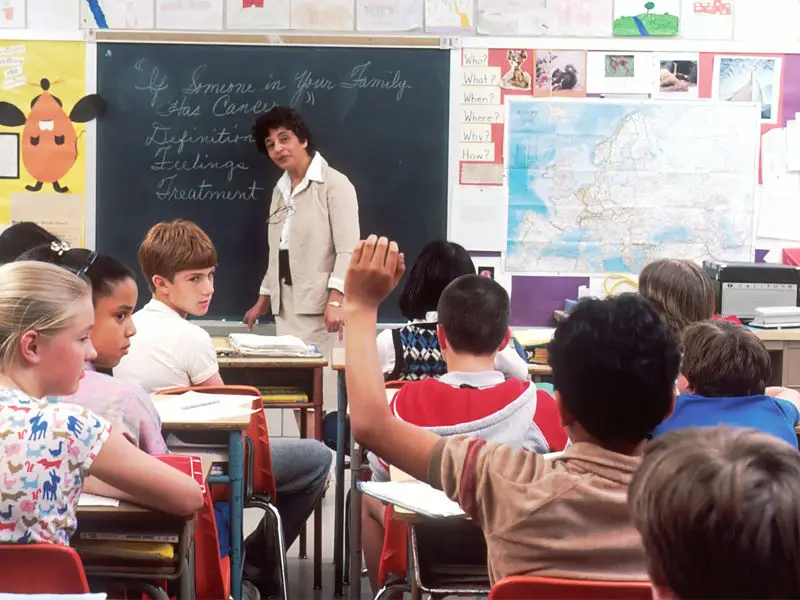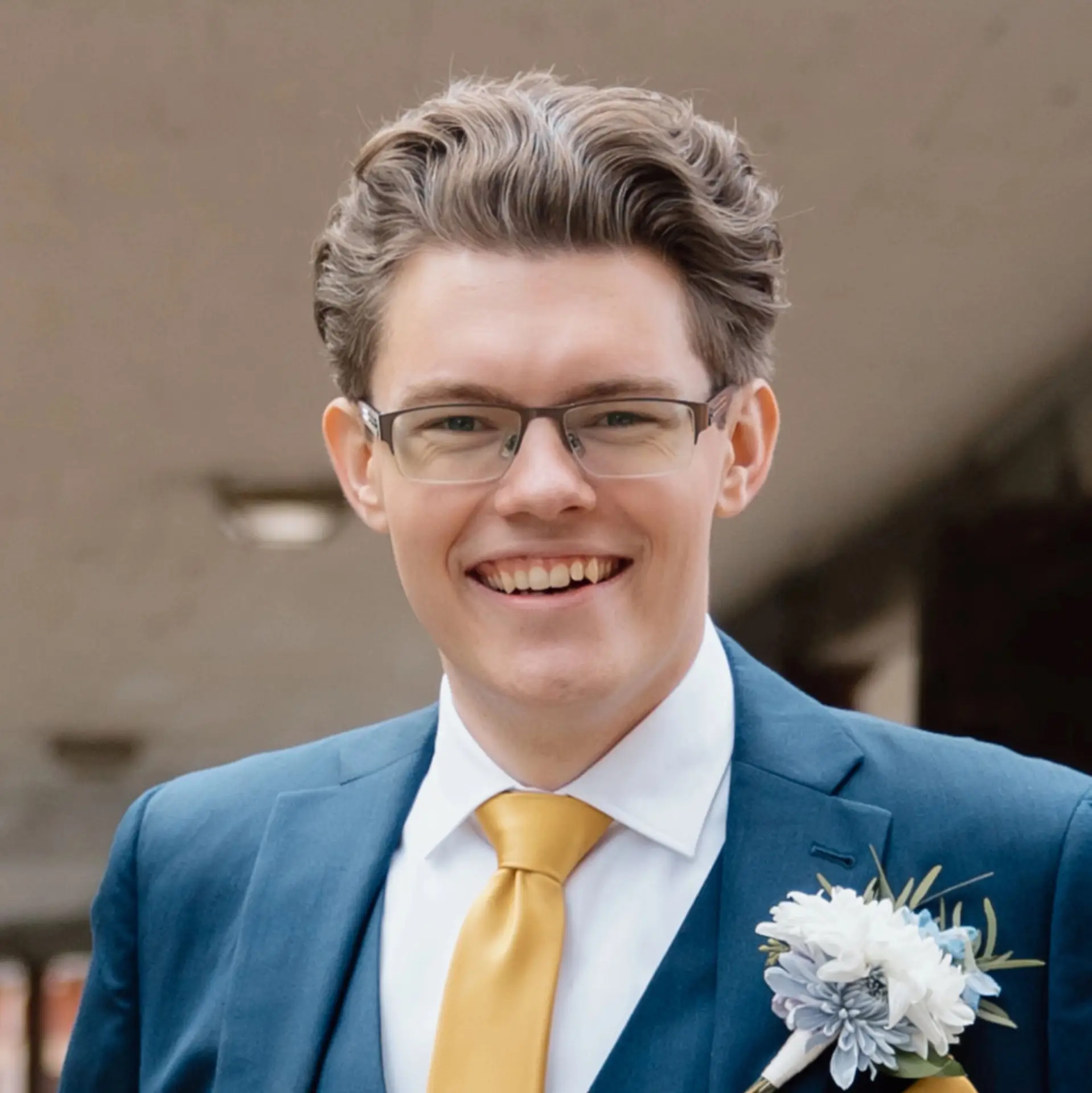What practical skills do high schoolers need most?

High school can be an intimidating stage of life for students and their parents. It’s during these years that young adults start to realize they’ll be heading into the real world soon, where they’ll need to make decisions for themselves, and take personal ownership of their actions and beliefs. Every parent wants to equip their child with the skills they’ll need to thrive in the real world. But how do you know which skills are most important?
At Unbound, we train young adults to thrive. One of the primary ways we do that is by teaching them practical, real-world skills through project-based education. Here are the top three skills we believe are the most important for high school students to develop as they prepare to launch into adulthood.
Asking Good Questions
Over the last twenty years, there has been a fundamental shift in the way that the world works. The world used to operate in an answers-based paradigm. The more answers you had in your head, the better off you were. That’s why a college degree has historically been such a huge measure of capability: it meant that you knew the answers to a lot of questions and had the knowledge necessary to be successful in the real world.
And then came the internet, and with it the democratization of knowledge, and therefore, answers. Suddenly, a high schooler had instant access to all of the same information that they once had to rely on a university for. It’s not nearly as important for you to have all of the answers in your head anymore, because any answer you don’t have is just a Google away.
We are now living in a questions-based paradigm: the most successful people are going to be those who are able to ask the right questions in their given situation, and critically evaluate the answers they find. They can then use that information to continue asking better questions and repeat the process until they have the knowledge that they need to be able to accomplish the tasks in front of them.
This fundamental shift is why the ability to ask good questions is one of the biggest advantages a young person can have as they launch into adulthood. If you’d like to hear more of our thoughts about the questions-based paradigm, check out this blog post on the topic by Unbound’s President, Jonathan Brush.
The future of education in your inbox.
Get productivity tips, commentary, and Unbound updates sent to you!
Time & Task Management
Managing your time well and accomplishing the tasks set before you is a crucial part of being a successful adult. Yet, as anyone who has ever been a part of a group project knows, it also seems to be one of the most elusive skills in today’s workforce.
This set of skills is particularly important for students who are going into or just finishing high school, due to how much more responsibility they will gain through this stage of their lives. Young adults are faced with increasing demands on their time, expectations of their productivity, and stress as they attempt to figure out how to balance it all.
It’s very easy for this increased pressure to become overwhelming for a student entering adulthood, especially if they’re not actively preparing for it ahead of time. But, for young adults who are actively seeking out ways to manage their time better, become more efficient at accomplishing their tasks, and do both in a way that doesn’t put them under constant stress, they’ll be set up for success in a way that few others are.
Building Healthy Relationships
Every part of your life is determined, at least in part, by how well you are able to manage relationships. Your relationships with your boss and your coworkers are a significant factor in how long you’ll be able to last at any given job, and how much you’ll enjoy it. Your relationships with your friends help keep you grounded and connected to your community. Your relationships with your family, immediate and extended, will have an impact on who is able to be there for you in times of need. And, most importantly, your relationship with God determines how well you are able to live in a way that gives you purpose, hope, and joy.
For students transitioning into adulthood, building relationships intentionally can often be challenging. As kids, they’re used to just having relationships with the people that are around them and their family. As they become adults, they have to be intentional about pursuing relationships, knowing where to look, and how to build them well. They also have to be mindful of what a healthy relationship looks like, what it looks like when a relationship is unhealthy, and how to address an unhealthy relationship.
Understanding the importance and the nuance of relationships is vitally important, but also extremely challenging. If a student is able to recognize that fact early on, and look for ways to build their relational skills before they reach adulthood, it gives them one of the best tools they can have to live a thriving, resilient life.
How does Unbound teach these skills?
At Unbound, this set of skills is a core part of what we teach, at every level and in every format.
Our life purpose course, Navigate, is one of the first ways that we introduce these essential skills to our students. Navigate introduces students to the fact that we live in a questions-based paradigm, and gives them an immediately applicable model for making big life decisions in a way that alleviates stress and anxiety. Navigate students are taught to explore their interests through questions, test their interests through experience, and identify their next steps through reflection and application.
Our high school coaching program Equip, comes alongside homeschooling students in 9th-11th grade to help them develop the practical life and study skills they need to thrive in the real world. Equip introduces students to project-based education, a core element of each of Unbound’s programs, where they tackle ambitious real-world projects in areas they’re interested in, learning in real-time how to manage their time and tasks. Each student is put on an Equip team with 8-10 students in their grade. Throughout the year, teams meet every other week with their Equip coach for mentorship and accountability as they learn to take ownership of their education.
Our 12th-grade dual credit program, Explore, includes all of the same features of Equip, pluas 6-9 college credits and Unbound’s live orientation event, APEX, held in Carolina Point. At APEX, students meet their coach and teammates in-person and build relationships as they engage in sessions, small group discussions, and team challenges..
Ascend is Unbound’s post-high school program, focused on leadership and professional development. With both certificate and degree enrollment options, Ascend is the program that does what college should: equips students with the education, skills, experience, and community they need to thrive in the real world. Ascend students attend live, in-person events every 12 weeks, develop practical skills through hands-on projects in fields of interest, and earn resume-worthy certificates each year they complete in the program.
Want to see which of Unbound’s programs is right for your student? Schedule an appointment with us today!

David Rethemeyer is the Marketing Coordinator for Unbound. He was a homeschool graduate by age 16, earned his BSBA through the Unbound program, and finished his MBA from Missouri S&T by age 21. He specializes in branding, content marketing, and digital advertising.
In his spare time, David enjoys gaming with friends, going for long runs on the Katy trail, tinkering with his computer, coming up with Words of Wisdom (ask an Unbound student to explain) serving at his local church, and eating absurdly spicy chicken wings.


